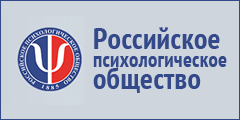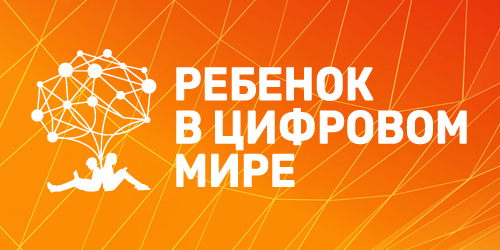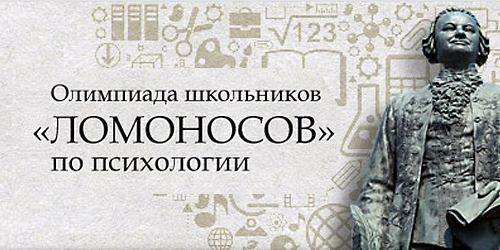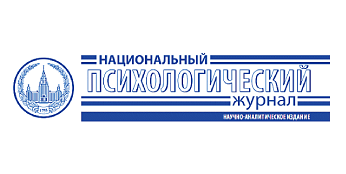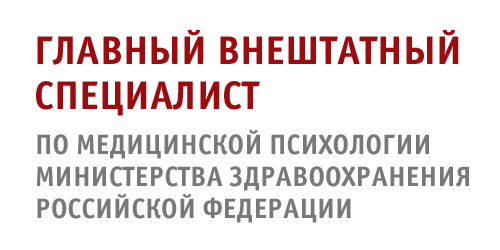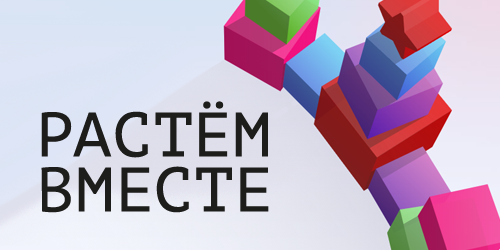Развитие регуляторных функций у дошкольников 4–7 лет: роль продолжительности посещения детского сада
Аннотация
Актуальность. Регуляторные функции являются одним из показателей, способствующих гармоничному развитию ребенка и его успешности в будущем, что обусловливает актуальность изучения факторов, которые могут оказывать влияние на их формирование.
Цель. Исследовать связь между продолжительностью посещения детского сада и развитием рабочей памяти, когнитивной гибкости и торможения как компонентов регуляторных функций у дошкольников.
Методы. Для диагностики уровня развития регуляторных функций были использованы субтесты батареи NEPSY–II. Также был осуществлен сбор данных о сроке посещения детьми детского сада согласно журналу учета пребывания детей в ДОУ.
Выборка. 947 детей в возрасте от 53 до 86 месяцев (Mage = 70,3; SDage = 4,3), 515 мальчиков и 495 девочек из Москвы, Казани и Сочи.
Результаты. Обнаружены достоверные различия в развитии регуляторных функций у детей с различным сроком посещения детского сада. Уровень развития слуховой рабочей памяти значимо выше у детей, которые посещают детские сады более 2-х лет по сравнению с детьми с меньшим сроком посещения. Физический сдерживающий контроль значимо ниже у детей, которые посещают детский сад менее 1-го года по сравнению с теми, кто ходит в детский сад более продолжительное время. Были выявлены значимые различия в уровне развития зрительной рабочей памяти в зависимости от региона посещения детского сада и срока его посещения.
Выводы. Проведенное исследование продемонстрировало значимые различия в уровне формированности зрительно–пространственной рабочей памяти, слухоречевой рабочей памяти и физического сдерживающего контроля у детей в зависимости от срока посещения дошкольного учреждения. Наиболее высокие показатели были выявлены у дошкольников, посещающих детский сад более двух лет. Таким образом, результаты исследования подчеркивают важность образовательной среды детского сада для успешного когнитивного развития дошкольников.
Литература
Белолуцкая А.К., Веракса А.Н., Алмазова О.В., Бухаленкова Д.А., Гаврилова М.Н., Шиян И.Б. Связь характеристик образовательной среды детского сада и уровня развития регуляторных функций дошкольников // Психологическая наука и образование. 2018. Т. 23, № 6. С. 85–96. https://doi.org/10.17759/ pse.2018230608
Веракса А.Н., Алмазова О.В., Бухаленкова Д.А. Диагностика регуляторных функций в старшем дошкольном возрасте: батарея методик // Психологический журнал. 2020. Т. 41, № 6. С. 108–118. https://doi.org/10.31857/S020595920012593-8
Веракса Н.Е., Комарова Т.С., Дорофеева Э.М. От рождения до школы. Инновационная программа дошкольного образования. М.: МОЗАИКА–СИНТЕЗ, 2019.
Выготский Л.С. Проблемы общей психологии. Собрание сочинений: в 6 т. Т. 2. М.: Педагогика, 1982.
Долгих А.Г., Баянова Л.Ф., Шатская А.Н., Якушина А.А. Связь оценки музыкальных способностей и показателей регуляторных функций детей, посещающих музыкальные занятия // Российский психологический журнал. 2022. Т. 19, № 4. С. 80–93. https://doi.org/10.21702/rpj.2022.4.5
Карданова Е.Ю., Иванова А.И., Сергоманов П.А., Канонир Т.Н., Антипкина И.В., Кайкы Д.Н. (2018). Обобщенные типы развития первоклассников на входе в школу. По материалам исследования iPIPS // Вопросы образования. № 1. С. 8–37. https://doi.org/10.17323/1814-9545-2018-1-8-37
Лурия А.Р. Высшие корковые функции человека и их нарушения при локальных поражениях мозга. М.: Издательство Московского университета, 1962.
Ляхова Е.В. Коммуникативная компетентность дошкольников с разным групповым статусом // Психология и педагогика служебной деятельности. 2019. № 3. С. 30–32.
Моросанова В.И. Осознанная саморегуляция как метаресурс достижения целей и разрешения проблем жизнедеятельности // Вестник Московского университета. Серия 14. Психология. 2021. № 1. С. 4–37. https://doi.org/10.11621/ vsp.2021.01.01
Пиаже Ж. Речь и мышление ребенка. СПб.: Педагогика–Пресс, 1994.
Прошкова З.В. Влияние обучения в детском саду на образовательную успешность младшеклассников в оценках родителей // Мир науки. Педагогика и психология. 2021. Т. 9, № 5 [Электронный ресурс] // URL: https://mir–nauki. com/PDF/22PSMN521.pdf https://doi.org/10.15862/22PSMN521
Солопова О.В., Козополянская–Соловьева А.И. Феномен «переселенца» как фактор отторжения или воспроизводства национальной культуры в практике воспитания детей у белорусов Москвы // Современное дошкольное образование. Теория и практика. 2016. Т. 7, № 69. С. 8–16.
Эльконин Д.Б. Психология игры. М.: Педагогика, 1978.
Юдина Е.Г. Детская игра как территория свободы // Национальный психологический журнал. 2022. № 3. С. 13–25. https://doi.org/10.11621/npj.2022.0303
Anderson, V. (2001). Assessing executive functions in children: biological, psychological, and developmental considerations. Pediatric Rehabilitation, 4 (3), 119–136. https://doi.org/10.1080/713755568
Ardila, A. (2019). Executive Functions Brain Functional System. In A. Ardila, S. Fatima, M. Rosselli (Eds.). Dysexecutive Syndromes. Springer: Cham. https://doi. org/10.1007/978-3-030-25077-5_2
Best, J.R. (2010). Effects of physical activity on children’s executive function: contributions of experimental research on aerobic exercise. Developmental Review, 30, 331–351.
Best, J.R., Miller, P.H., Naglieri, J.A. (2011). Relations between executive function and academic achievement from ages 5 to 17 in a large, representative national sample. Learning and Individual Differences, 21, 327–336.
Bull, R., Espy, K.A., Wiebe, S.A. (2008). Short–term memory, working memory, and executive functioning in preschoolers: Longitudinal predictors of mathematical achievement at age 7 years. Developmental Neuropsychology, 33, 205–228.
Chichinina, E., Bukhalenkova, D., Tvardovskaya, A., Semyonov, Yu., Gavrilova, M., Almazova, O. (2022). The Relationship between Executive Functions and Dance Classes in Preschool Age Children. Educational Science, 12, 788. https://doi. org/10.3390/educsci12110788
Chichinina, E.A., Gavrilova, M.N. (2022). Growth of Executive Functions in Preschool–Age Children During the COVID–19 Lockdown: Empirical Evidence. Psychology in Russia: State of the Art, 15 (2), 124–136. https://doi.org/10.11621/pir.2022.0209
Clements, D.H., Sarama, J., Germeroth, C. (2016). Learning executive function and early mathematics: Directions of causal relations. Early Childhood Research Quarterly, 36, 79–90.
Cortés Pascual, A., Moyano Muñoz, N., Quílez Robres, A. (2019). The Relationship Between Executive Functions and Academic Performance in Primary Education: Review and Meta–Analysis. Frontiers in Psychology, 10, 1582. https://doi.org/10.3389/fpsyg.2019.01582
Curby, T.W., LoCasale–Crouch, J., Konold, T.R. , Pianta, R.C., Howes, C., Burchinal, M., Bryant, D., Clifford, R., Early, D., Barbarin, O. (2009). The Relations of Observed Pre–K Classroom Quality Profiles to Children’s Achievement and Social Competence. Early Education and Development, 20 (2), 346–372.
Dean, J.T., Jayachandran, S. (2019). Attending kindergarten improves cognitive but not socioemotional development in India. Working paper. (Retrieved from https:// faculty.wcas.northwestern.edu/~sjv340/kindergarten.pdf).
Diamond, A. (2013). Executive Functions. Annual Review of Psychology, 64, 135–168.
Diamond, A., Ling, D.S. (2016). Conclusions about interventions, programs, and approaches for improving executive functions that appear justified and those that, despite much hype, do not. Developmental Cognitive Neuroscience, 18, 34–48. https:// doi.org/10.1016/j.dcn.2015.11.005
Duncombe, M., Havighurst, S.S., Holland, K.A., Frankling, E.J. (2013). Relations of emotional competence and effortful control to child dis–ruptive behavior problems. Early Education & Development, 24 (5), 599–615. https://doi.org/10.1080/10409289. 2012.701536
Duval, S., Bouchard, C., Pagé, P., Hamel, C. (2016). Quality of classroom interactions in kindergarten and executive functions among five–year–old children. Cogent Education, 3, 79–96.
Ellemberg, D., and St–Louis–Deschênes, M. (2010). The effect of acute physical exercise on cognitive function during development. Sport, Exercise, and Performance Psychology, 11, 122–126. https://doi.org/10.1016/j.psychsport.2009.09.006
Frolli, A., Cerciello, F., Esposito, C., Ciotola, S., De Candia, G., Ricci, M.C., Russo, M.G. (2022). Executive Functions and Foreign Language Learning. Pediatric Reports, 14 (4), 450–456. https://doi.org/10.3390/pediatric14040053
Ghardashi, F., Rahnama, F., Akbarzadeh, R., Stagy, Z. (2013). Relationship between Kindergarten Attendance and Cognitive–Motor Development of Preschool Children in Sabzevar City. Life Science Journal, 9, 377–380.
Gong, X., Xu, D., Han, W.J. (2016). The effects of preschool attendance on adolescent outcomes in rural China. Early Childhood Research Quarterly, 37, 140–152. https://doi.org/10.1016/j.ecresq.2016.06.003
Hall, J., Sylva K., Sammons P., Melhuish E., Siraj–Blatchford I., Taggart B. (2013). Can preschool protect young children’s cognitive and social development? Variation by center quality and duration of attendance. School Effectiveness and School Improvement, 24, 155–176. https://doi.org/10.1080/09243453.2012.749793
Hamre, B., Hatfield, B., Pianta, R., Jamil, F. (2014). Evidence for general and domain–specific elements of teacher–child interactions: associations with preschool children’s development. Child Development, 85, 1257–1274.
Hill, C.J., Gormley, W.T., Adelstein, S. (2015). Do the short–term effects of a high–quality preschool program persist? Early Childhood Research Quarterly, 32, 60–79. https://doi.org/10.1016/j.ecresq.2014.12.005
Jaschke, A.C., Honing, H., Scherder, E.J.A. (2018). Longitudinal Analysis of Music Education on Executive Functions in Primary School Children. Frontiers in Neuroscience, 12, 103.
Jeon, H., Langill, C., Peterson, C., Luze, G., Carta, J., Atwater, J. (2010). Children’s Individual Experiences in Early Care and Education: Relations With Overall Classroom Quality and Children’s School Readiness. Early Education and Development, 21, 912–939.
Korkman, M., Kirk, U., Kemp, S.L. (2007). NEPSY II. Administrative Manual. Psychological Corporation: San Antonio, TX, USA.
Miyake, A., Friedman, N.P., Emerson, M.J., Witzki, A.H., Howerter, A., Wager, T.D. (2000). The unity and diversity of executive functions and their contributions to complex “frontal lobe” tasks: A latent variable analysis. Cognitive Psychology, 41, 49–100.
Oshchepkova, E.S., Shatskaya, A.N., Kovyazina, M.S. (2023). The longitudinal influence of the level of executive function development on children’s transcriptional skills: a modern view of A. Luria’s ideas. Frontiers in Psychology, 14, 1199683. https://doi.org/10.3389/fpsyg.2023.1199683
Pinto, A.I., Pessanha, M., Aguiar, C. (2013). Effects of home environment and center–based child care quality on children’s language, communication, and literacy outcomes. Early Childhood Research Quarterly, 28, 94–101.
Rydell, A.M., Berlin, L., Bohlin, G. (2003). Emotionality, emotion regulation, and adaptation among 5- to 8-year-old children. Emotion, 3, 30–47.
Sánchez–García, M.A., Lucas–Molina, B., Fonseca–Pedrero, E., Pérez–Albéniz, A., Paino, M. (2018). Dificultades emocionales y comportamentales en la adolescencia: relación con bienestar emocional, afecto y rendimiento académico. Anales de Psicología, 34 (3), 482–489. https://doi.org/10.6018/analesps.34.3.296631
Shoghi Javan, S., Ghonsooly, B. (2017). Learning a Foreign Language: A New Path to Enhancement of Cognitive Functions. Journal of Psycholinguistic Research, 47 (1), 125–138. https://doi.org/10.1007/s10936-017-9518-7
Silva, C., Sousa–Gomes, V., Fávero, M., Oliveira–Lopes, S., Merendeiro, C.S., Oliveira, J., Moreira, D. (2022). Assessment of preschool–age executive functions: A systematic review. Clinical Psychology & Psychotherapy, 29 (4), 1374–1391. https://doi.org/10.1002/cpp.2718
Stich, H.L., Baune, B.T., Caniato, R.N., Krämer, A. (2006). Associations between preschool attendance and developmental impairments in pre–school children in a six–year retrospective survey. BMC Public Health, 6, 260. https://doi.org/10.1186/1471-2458-6-260
Sukhikh, V.L., Veresov, N.N., Veraksa, N.E. (2022). Dramatic Perezhivanie as a driver of executive functions development through role–play in early childhood: Theoretical framework and experimental evidence. Frontiers in Psychology, 13, 1057209. https://doi.org/10.3389/fpsyg.2022.1057209
Sylva, K., Melhuish E., Sammons P., Siraj I., Taggart B., Smees R., Toth K., Welcomme W., Hollingworth K. (2014). Effective Pre–school, Primary and Secondary Education 3–16 Project (EPPSE 3–16) Students’ Educational and Developmental Outcomes at Age 16 Department. Education Research Report RR354.
Vandell, D.L., Belsky, J., Burchinal, M., Steinberg, L., Vandergrift, N. (2010). NICHD Early Child Care Research. Do effects of early child care extend to age 15 years? Results from the NICHD study of early child care and youth development. Child Development, 81, 737–756. https://doi.org/10.1111/j.1467–8624.2010.01431.x
Veraksa, A., Almazova, O., Bukhalenkova, D. (2020). Studying executive functions in senior preschoolers. PsyCh Journal, 9 (1), 144–146. https://doi.org/10.1002/pchj.310
Veraksa, A.N., Aslanova, M.S., Bukhalenkova, D.A., Veraksa, N.E., Liutsko, L. (2020). Assessing the Effectiveness of Differentiated Instructional Approaches for Teaching Math to Preschoolers with Different Levels of Executive Functions. Education Sciences, 10, 181. https://doi.org/10.3390/educsci10070181
Veresov, N. (2012). The importance of cultural–historical theory of education: Reflections on learning, development, business and creativity. Forum Oswiatowe, 1 (46), 141–156.
Weiland, C., Ulvestad, K., Sachs, J., Yoshikawa, H. (2013). Associations between classroom quality and children’s vocabulary and executive functions skills in an urban public prekindergarten program. Early Childhood Research Quarterly, 28, 199–209.
Zelazo, P.D. (2006). The Dimensional Change Card Sort (DCCS): A method of assessing executive function in children. Nature Protocols, 1, 297–301.
Zheng, L., Weng, Q., Gong, X. (2021). Does preschool attendance affect the urban–rural cognition gap among middle school students? Evidence from China Education Panel Survey. The Journal of Chinese Sociology, 8, 14. https://doi.org/10.1186/ s40711-021-00150-1
Поступила: 16.09.2023
Принята к публикации: 13.11.2023
Дата публикации в журнале: 18.12.2023
Ключевые слова: регуляторные функции; рабочая память; торможение; когнитивная гибкость; детский сад; образовательная среда; дошкольники
DOI: 10.11621/LPJ-23-39
Доступно в on-line версии с: 18.12.2023
Веракса, А.Н., Гаврилова, М.Н., Каримова, А.И., Солопова, О.В., Якушина, А.А. (2023). Развитие регуляторных функций у дошкольников 4–7 лет: роль продолжительности посещения детского сада. Вестник Московского университета. Серия 14. Психология, 46(4), 64-87. https://doi.org/10.11621/LPJ-23-39
скопировано

Это произведение доступно по лицензии Creative Commons «Attribution-NonCommercial» («Атрибуция-Некоммерчески») 4.0 Всемирная



